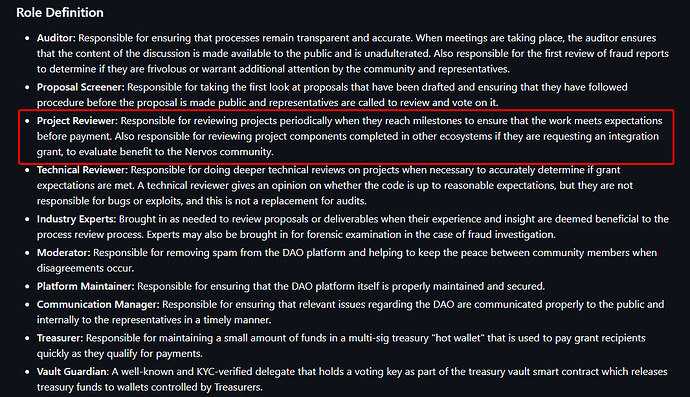You mentioned that teams may “face legal consequences” — but I’d like to follow up with a practical question:
In a decentralized funding system, if a team disappears or refuses to deliver, who exactly enforces the legal responsibility? Under which jurisdiction? Does the DAO actually have any enforcement capability?
If this “legal threat” is merely theoretical, with no realistic pathway for execution, then it’s not really a law — it’s just a comforting illusion. Meanwhile, the DAO’s capital remains at risk of misuse.
That’s why I believe we should not rely on vague legal threats to cover for structural gaps.
Instead of counting on post-failure punishment, we should build a system that includes clear exit triggers and automated stop-loss protections.
你提到“可能面临法律后果”,但我想进一步请教:
在一个去中心化的资助体系里,如果项目方跑路或拒不履约,所谓的“法律责任”具体是谁来执行?由哪个司法管辖区?DAO 是否有实际的追责能力?
如果这个“法律”只是理论上的震慑,却没有任何实际落地的执行通道,那它就不是法律,而只是一个心理安慰。而 DAO 的资金就可能持续被滥用或浪费。
因此,我认为我们不应该用“可能承担法律责任”来掩盖机制上的缺位。与其寄希望于事后追责,不如在机制上预设清晰的退出流程与自动化止损机制。
If a project intends to receive funding through the DAO, then it must follow the principles of openness and transparency. There should be no more “under the table” operations or off-chain negotiations.
When explanations repeatedly rely on phrases like “they have good intentions,” “we’ve been in regular contact,” or “they’ve done a lot behind the scenes” — that, in itself, is the problem.
If real discussions, real decisions, and real progress tracking all happen off-chain or in private chats, then what is the point of having a public DAO process at all?
The credibility of a proposal should not depend on trust behind closed doors or personal relationships. It should depend on transparent processes, clear accountability, and verifiable delivery milestones.
In my opinion, the continued defense of backchannel dealings, and the reluctance to surface issues publicly, is one of the biggest problems facing the DAO today.
If we can’t protect the most basic standard of transparency, then this isn’t decentralization — it’s simply shifting power from one center to another.
如果一个项目希望走 DAO 的公共资助流程,那它就必须遵守 DAO 的公开透明原则,不能再出现任何“under the table”(内部利益输送)的行为。
一再强调项目方“有意愿”“我们一直保持沟通”“做了很多但没公开”——这些话本身就是问题的体现。如果所有实际沟通、实际安排、实际判断都只存在于“私下渠道”,那 DAO 的治理流程、社区参与、资金问责还有什么意义?
项目进度是否真实、承诺是否兑现,不应该靠“台下信任”和“熟人推荐”来维系,而应该靠公开的流程、清晰的责任、可验证的交付来达成。
我认为,“维护台下交易、不推动问题公开化”已经成为当前 DAO 最大的问题之一。如果 DAO 连基本的公开透明都守不住,那这不是去中心化,是权力下沉给另一个中心。
You used the words “we” and “assign” when referring to how reviewers will be selected — and to me, that reflects a power structure in itself.
Even in traditional corporate governance, review committees are often randomly selected from a pool of certified experts, precisely to avoid bias and ensure fairness — similar to a jury selection system. If centralized companies can recognize this need for randomness to ensure impartiality, how can we justify manual reviewer assignments in a platform that claims to be decentralized?
In decentralized systems, randomness is not chaos — it is fairness.
When you say “we will assign reviewers,” the immediate question is: who is ‘we’? On what basis? Who oversees the overseers?
If governance roles can decide who reviews what, then we are no longer talking about community-driven review. We’re talking about delegated authority with no built-in checks and balances — and that’s how centralized capture begins.
你在回应中使用了“我们”和“指派”这样的措辞——对我来说,这本身就已经是一种权力结构的体现。
哪怕是在传统的公司制度中,为了避免评审过程中的偏见和暗箱操作,评标专家往往也是从专家库中“随机抽取”的,就像陪审团制度一样,随机性是为了保障程序的公平与独立。
如果一个强调去中心化的项目平台,在涉及项目审核这样的关键环节时,却由某个“我们”来直接“指派”评审人员,那就必须问:
“这个‘我们’是谁?他们如何产生?他们的权力是否受到监督?他们代表谁?”
在真正的去中心化系统里,“随机”不是混乱,而是公平的手段。
一旦审核权掌握在个别人或小团队手里,失去了制度上的制衡和透明的操作规则,那 DAO 所宣称的“社区驱动”,就变成了“集中式决策的包装”。
Decentralized governance is inherently more difficult than centralized systems, precisely because anyone can submit a proposal. That’s why it’s critical to design strong checks and balances between project proposers, reviewers, and voters.
To prevent systemic corruption, DAO processes should prioritize restrictions and transparency, not arbitrary openness. Otherwise, we will inevitably fall into a tragedy of the commons.
If there are truly exceptional proposals that must be handled confidentially — due to strategic, legal, or sensitive contexts — they should go through a separate “special-case funding track,” not the public governance pipeline.
Otherwise, we face the following pattern:
Proposer submits → Reviewer protects → No real delivery → Voters left blind → DAO becomes a cash-out tool for internal alliances.
Palmyra is already a warning sign. If a project can ignore the rules and still receive protection from those in power, then governance becomes performative — and the rule of law is replaced by the rule of influence.
在去中心化项目中,治理本就比中心化系统更难。因为谁都可以发起项目,所以更需要设计强有力的制衡机制,在“项目发起人、审核人、投票人”之间形成彼此制约的关系。
为了防止出现系统性腐败,DAO 的每一个中间环节都应该趋于限制、强调透明,而不是被任意开放,否则就会走向“公地悲剧”。
如果确实有一些需要“特事特办”的项目,比如涉及战略、合规、或其他不适合公开披露的背景信息,那应该走独立的特殊资金通道,而不是伪装成普通项目混入公开审核体系。
否则,就会出现如下情形:
项目执行人不履约 → 项目发起人和审核人提供庇护 → 投票人无法判断 → DAO 沦为内部关系的提款机。
Palmyra 项目就是一个典型警示。如果一个项目可以不遵守规则,还能被长期包庇,那么所谓的治理就只是形式,“制度”也将再次被“权力”践踏。
